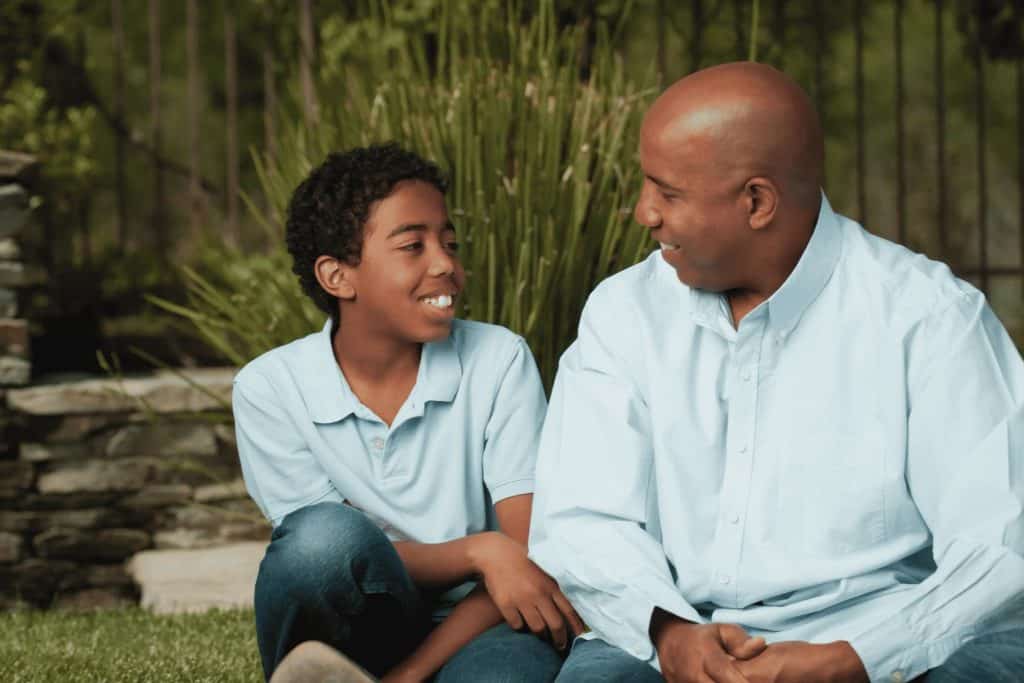When parents contemplate seeking drug rehab, one of their foremost concerns is how to care for their kids during treatment. For parents seeking addiction help, the quest to find a reliable caregiver for their children can pose considerable challenges. Moreover, the mere thought of being separated from their children for an extended period, spanning a month or more, as they enter rehab programs can evoke overwhelming fear.
These obstacles frequently lead parents to postpone treatment until their active addiction escalates. The truth is that addiction casts a devastating shadow over every aspect of life, affecting even the youngest family members. Children raised in households grappling with substance abuse are at a higher risk of encountering difficulties in school, grappling with emotional expression, encountering mental health issues, and even venturing into drug and alcohol use themselves.
As a parent struggling with addiction, it is imperative that you seek treatment to ensure your well-being for the sake of your children and to access the necessary family support. No justification is potent enough to allow your addiction to continue harming your children.
Here, we present a range of alternatives for managing childcare during rehab, enabling you to access the support you need.
Options for Child Care When a Parent Goes to Rehab
If you are considering an inpatient or residential treatment program, you may consider finding temporary child care during your stay in rehab. Allowing someone else to take care of your kids and your parenting responsibilities will allow you to focus completely on your individual recovery.
While children are a blessing, they can also be demanding, time-consuming, and stressful. Many parents ask for help during rehab from their:
- Spouse
- Significant other
- Parents
- Siblings
- Extended family
- Close friends
If you have someone you trust who can care for your children while you go to rehab, you’ll need to make all of the necessary preparations. Consider the following.
- Stocking the pantry with food for the children and their caregivers
- Leaving money or a credit card with the caregiver
- Writing down each child’s daily schedule
- Making a list of any medical needs, allergies, or medications
- Making a list of emergency contacts and doctor(s)

Completing these tasks will make it easier on your friend/family member while caring for your kids. Although committing to an inpatient drug rehab program can seem scary, remember that you are allowed to have visitors during rehab. Your kids will be able to visit you, talk with you on the phone, and even write letters back and forth.

Understanding How A Parent’s Substance Abuse Can Impact Child Custody Decisions
Understanding the profound impact a parent’s substance abuse can have on child custody decisions is crucial, particularly in the context of parents who are compelled to undergo rehab while also caring for their children. We understand the challenges parents face and the potential heartache of losing custody of their beloved children due to their struggles with substance abuse.
Substance abuse, whether involving drug or alcohol addiction, creates a multifaceted challenge that reverberates throughout families. In cases where parents are at risk of losing custody or have already faced the heartbreaking reality of it, we extend our deepest sympathy. The child welfare system, while focused on safeguarding the well-being of children, can also be a challenging terrain for parents grappling with addiction. Child protective services must navigate a difficult balance between ensuring a child’s safety and understanding the complexities of addiction and recovery. Substance abuse disorder casts a long shadow, impacting not only the individual but also the entire family structure, particularly when children are involved.
The connection between substance use disorders and child custody decisions underscores the urgency of seeking treatment and support. We recognize the immense courage it takes for parents to acknowledge their struggles and choose to attend rehab. Our comprehensive treatment options and caring professionals are here to provide the necessary guidance and resources, empowering parents to work towards recovery while also addressing their parental responsibilities.

Get The Care You Need and Deserve
Woburn Addiction Treatment is a leader in the addiction treatment field, with proven success in facilitating long-term recovery. Our team of top clinical & medical experts specializes in treating addiction coupled with mental illness, ensuring that each person receives individualized care. Call us – we’re available 24/day, 7 days/week.
Outpatient Rehab Options for Parents
Unfortunately, not everyone has friends or family they trust enough to leave their kids with. If you are out of options for 24/7 childcare, you may consider our outpatient addiction treatment program that offers flexible schedules for parents.
- Day Treatment or Partial Hospitalization Program (PHP) – Attend treatment during the day for several hours Monday-Friday. PHP programs typically run during the same hours as school and daycare do, so you can send your kids to school or daycare during the hours you spend in rehab. Day treatment/PHP is similar to residential rehab, except you attend therapy during the day and return home in the evening.
- Intensive Outpatient Program (IOP) – IOPs often run in the mornings, afternoons, or evenings for 2-3 hours, 4-5 days a week. This is a more flexible treatment option than PHP as it requires fewer hours of your participation. You can easily hire a babysitter during therapy hours or schedule therapy while your kids are in school or daycare.
- Outpatient Program (OP) – Outpatient is very similar to IOP except you only attend therapy sessions 2-3 days per week. This is best for people with mild addictions or those who have already completed a higher level of care.
All of these options can provide you with adequate, individualized addiction treatment while allowing you to continue caring for your kids.
Tearing Down Drug Abuse Stigma
Tearing down the stigma surrounding substance use disorder is crucial, especially for parents who are seeking help for their addiction while also caring for their children. The weight of societal judgment can make it challenging for parents to reach out for treatment, even though seeking help is a courageous step towards creating a healthier environment for themselves and their children.
Parental substance abuse is a challenge that affects families across all backgrounds. However, it’s important to recognize that addiction is a disease, not a moral failing. Society’s perception of addiction often places blame and shame on those struggling, hindering their ability to seek out rehab centers for their drug abuse. Breaking free from drug or alcohol abuse requires a comprehensive approach that includes medical care, therapy, and a supportive network.
By educating the public about the realities of substance use disorders, we can help shift the narrative and promote compassion. Families involved in the recovery process need a supportive community that understands the complexities of addiction, appreciates the journey of healing, and recognizes the importance of providing resources and treatment options for drug and alcohol abuse.
Talking To Your Kids About Going to Rehab
Children are extremely perceptive to their parent’s emotions and needs. If something isn’t quite right in the home, the chances are your kids are already aware. If you have older children, it is best to have an honest conversation with them about your addiction and your plans for treatment and explain rehab.
Explain to your kids that addiction is a chronic disease comparable to other health conditions that require intensive treatment. Let them know that you are not leaving them–you are taking some time away to get yourself healthy so you can be the best parent you can be.
While talking to your kids about going to rehab, you should try and emphasize the “Seven C’s” of addiction.
- I didn’t cause it – let your kids know they played no role in the development of your addiction.
- I can’t cure it – explain that addiction is a disease that requires treatment and that you will be a better parent after treatment.
- I can’t control it – make sure your kids know they have no control over your well-being–only their own well-being.
- I can care for myself – promote self-love and confidence in your kids by teaching them healthy ways to cope and care for themselves
- I can communicate my feelings – allow your kids to let you know how they feel. Be sure to communicate the fact that you understand and value their feelings. Do not judge or reprimand them.
- I can make healthy choices – educate your child on the imminent risks and harms of substance abuse.
- I can celebrate myself – allow your kids to celebrate their successes and promote an atmosphere of self-appreciation.
Lastly, reassure your kids you are not leaving them. Show them pictures of the addiction treatment center, drive them by the facility, and even take them on a tour if you can! Let your kids know they are able to come to visit you and talk with you on the phone until you return home full-time.

Family Therapy After Addiction Treatment
Family therapy after addiction treatment plays a crucial role in supporting parents who have embarked on the journey of recovery while also caring for their children.
Substance abuse can significantly impact family dynamics, often affecting parental relationships, child custody, and the overall well-being of the household. Recognizing the importance of addressing these complexities, therapy provides a safe space for open communication, healing, and rebuilding trust within the family unit.
Parents seeking treatment for drug or alcohol addiction may face concerns about losing custody of their children due to their substance misuse. However, family therapy serves as a valuable resource to strengthen parenting abilities, rebuild relationships, and address the negative consequences of addiction on both the parent and child.
By involving family members in the recovery process, therapy aims to create a supportive environment that encourages open dialogue, empathy, and understanding. Through counseling sessions and support groups like Al-Anon, parents can better understand the impact their addiction has had on their children and begin the process of repairing and rebuilding those relationships after completing treatment.
Mental Health Services Administration
In the context of family therapy, treatment programs emphasize the importance of creating a comprehensive and personalized plan to address the unique needs of both the parent and the children.
Recognizing the complex interplay between addiction and mental health disorders, mental health professionals collaborate with treatment specialists to develop a holistic approach to recovery.
This includes helping parents understand the impact of addiction on their parenting abilities and assisting them in learning healthy communication skills and parenting techniques. Ultimately, family therapy not only supports the individual’s recovery journey but also fosters an environment of healing and growth for the entire family, empowering parents to regain custody of their children and create a stable and nurturing home environment.

Substance Abuse Treatment for Parents in the Boston Area
Woburn Addiction Treatment, we understand the unique challenges parents face when it comes to caring for their kids during rehab and seeking treatment. We offer several flexible outpatient treatment options that allow parents to get sober without sacrificing any time away from their children. If you or a loved one are a parent struggling with addiction, don’t delay treatment any longer. Call now to see how we can help.

Get The Care You Need and Deserve
Woburn Addiction Treatment is a leader in drug and alcohol addiction treatment, with proven success in facilitating long-term recovery. Our team of top clinical & medical experts specializes in treating addiction coupled with mental illness, ensuring that each person receives individualized care.


